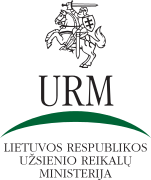The program Kids on Air refuses to associate the child with infantility and depicts the themes of childhood-motherhood-fatherhood without prejudices. Here, the child figure illuminates the structures of society or family and the expectations arising from them.
The screening features the videos of Lithuanian artists Irma Stanaitytė-Bazienė and Aurelija Maknytė, American and British filmmaker and artist Margaret Salmon, and French artist Laure Prouvost.
By exploring the imagination and development of a child, the works reflect the differences between the worlds of adults and children and their mutual interdependence. In the video installation Harping, Irma Stanaitytė-Bazienė records with humor and melancholy how a child’s reality is determined by the outside, for instance, mechanical educational systems. The limits of authenticity are tested in Camera-Mirror, filmed by Aurelija Maknytė with her son; here, the camera becomes a stylizing and binding means of communication.
Gender roles and their performativity also unfold in the program. In Margaret Salmon’s Boy (winter), the artist explores masculinity and gently documents the different physical and psychological stages of male development, ranging from infancy to adolescence, on 35mm film. Meanwhile, Laure Prouvost asks what it even means to try and convey a child’s imagination in today’s ever-changing world.
Gerda Paliušytė (b. 1987) is a Vilnius-based artist and curator. Her films tend to engage with a range of cultural agents, including historical and popular characters, focusing on the ways they modify the cultural landscape of specific places. Since 2018 Paliušytė has been curating the video art section of Meno Avilys Cinematheque.














